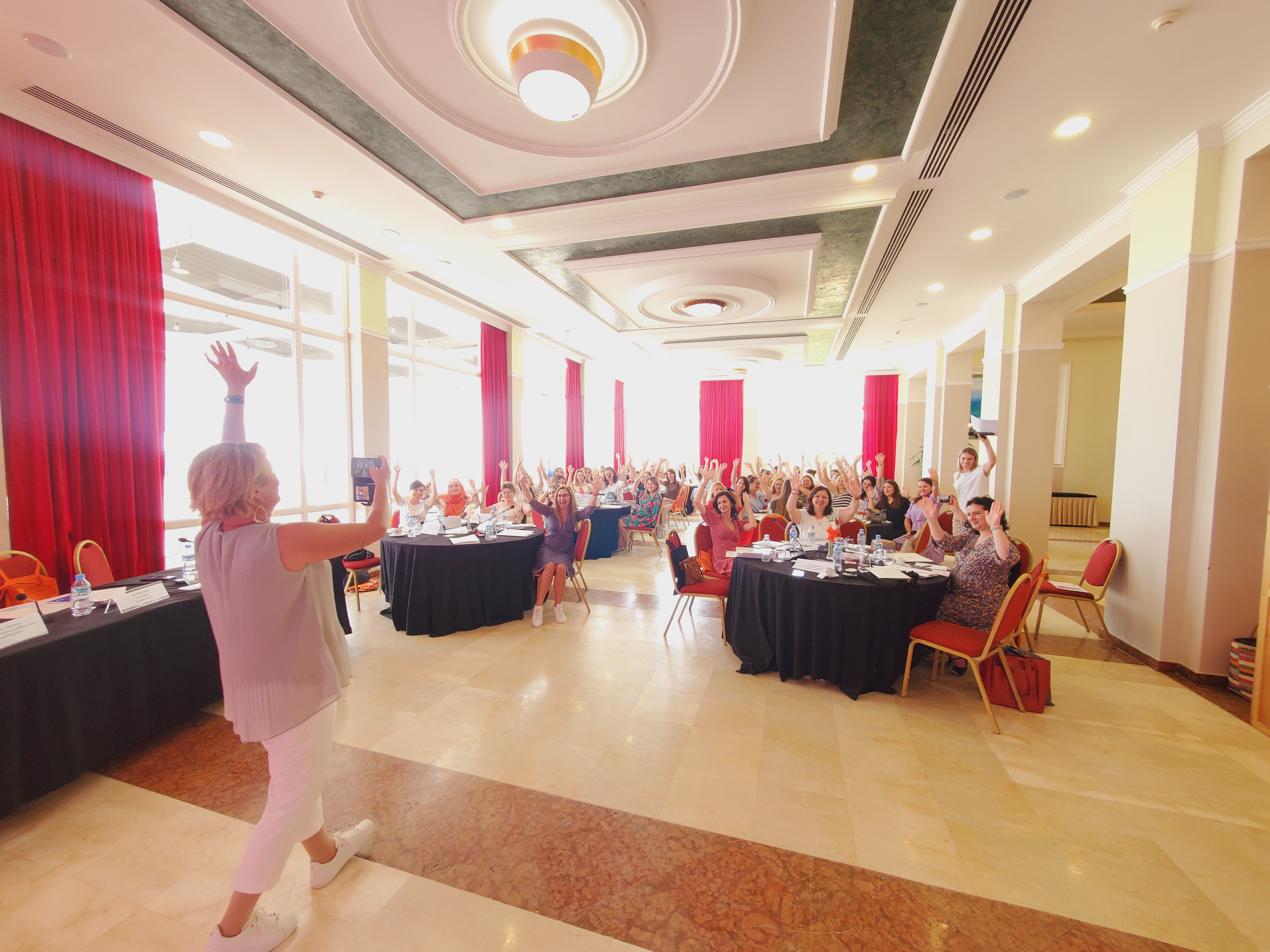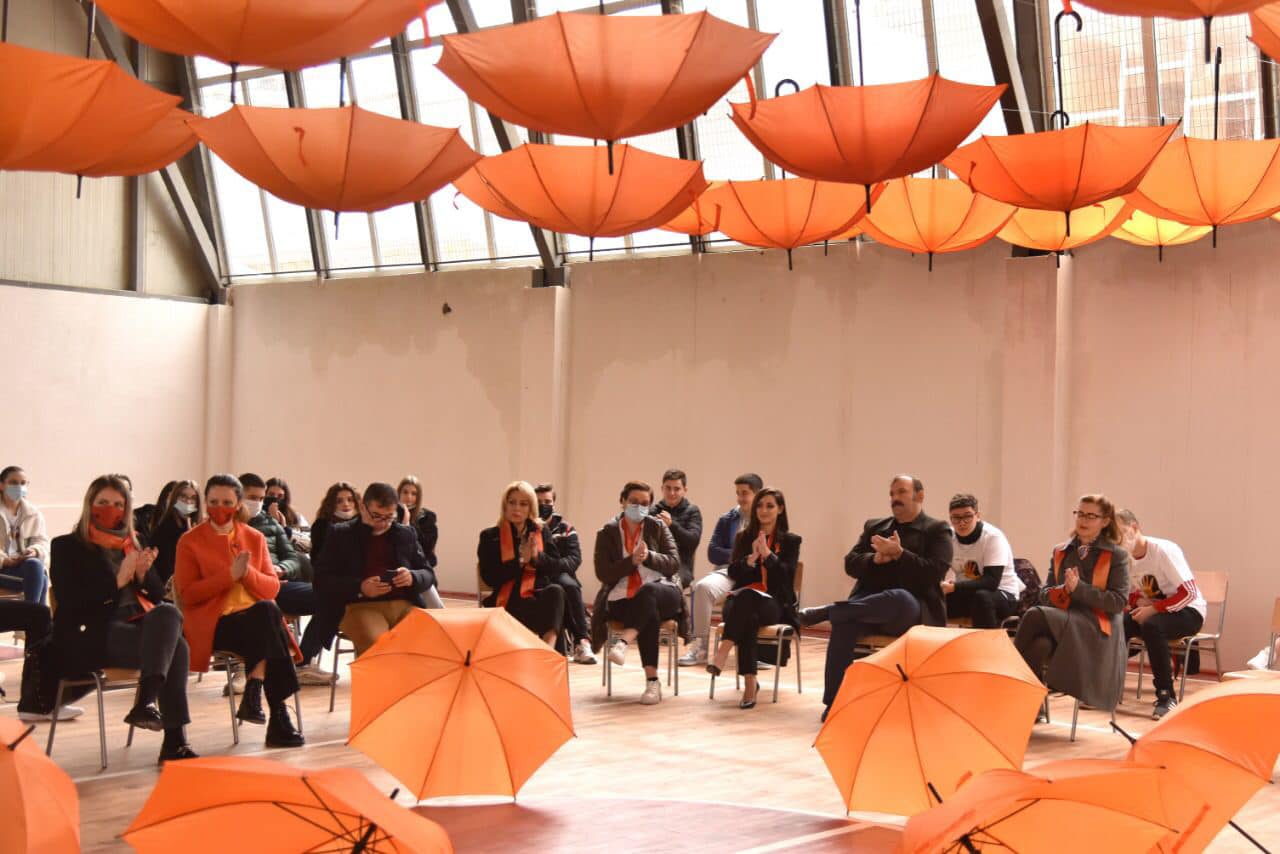UNDP Albania
UN Joint Programme, End Violence Against Women in Albania (EVAWIA)
Summary
The United Nations Joint Programme (UNJP) End Violence Against Women in Albania (EVAWIA) is a response to Government of Albania’s efforts to address violence against women (VAW). The joint programme (JP) is implemented through the modalities of the Delivering as One (DaO) mechanism, under the framework of the Albania-UN Programme of Cooperation for Sustainable Development 2017-2021 and Albania – UN Sustainable Development Cooperation Framework 2022-2026. The partner UN agencies involved in the programme are UNDP, designated as programme facilitator, UN Women and UNFPA. Key national partners included the Ministry of Health and Social Protection (MoHSP), as lead national partner, and other relevant national governmental bodies at the central level and local level. The programme, financed by the Swedish International Development Cooperation Agency (Sida) is implemented through January 2019 to June 2022 and has a budget of 3,554,370 USD.
The UNJP EVAWIA contributes to the UN Sustainable Development Cooperation Framework (UNSDCF) 2017-2021 between the Government of Albania (GoA) and the UN, and particularly within output 2.5, aiming at harmonizing legislation with international norms related to GB-VAW, to increase the number of and strengthen institutional mechanisms that prevent and address cases of GB-VAW and to develop and implement new tools that aid better understanding and prevention of GB-VAW. The UNJP EVAWIA also made direct reference to the implementation of 2030 Agenda, particularly SDG5 Achieve gender equality and empower all women and girls, and alignment with the 2016-2020 National Strategy on Gender Equality and Action Plan (NSGE) of the GoA Strategic Goal 3, Reducing gender-based violence (GBV) and particularly domestic violence (DV).

LCDVs Network: Network of Coordinators against Domestic Violence - Strengthening knowledge exchange is vital to UNDP. A full room of 58 Local Coordinators against Domestic Violence across Albania are exchanging best practices and challenges faced by Coordinated Referral Mechanism at local level while handling domestic violence cases.
Background
Albania has made important steps towards establishing a democratic state, functioning market economy, maintaining a stable economic growth, and achieving human development. Important progress is achieved in establishing relevant institutional and policy frameworks for achieving gender equality and women’s empowerment, in line with international, regional, and national gender equality standards and obligations. Despite significant efforts, the inclusion of vulnerable groups, particularly Roma and Egyptian communities, persons with disabilities and vulnerable women, remains problematic. The legislative framework has gaps, institutional response mechanism face challenges to improve and strengthen inter-institutional co-operation in preventing and handling violence against women (VAW) cases.
In Albania, violence against women and girls remains a very concerning issue. According to the third 2018 population based national survey on violence against women and girls showed that 52.9% Albanian women have experienced one or more forms of violence; 65.8% of women experienced dating violence during their lifetime. 18,1% of women experienced sexual harassment during their lifetime; 18.2% of women experienced non-partner violence and 12,6% of women have experienced stalking during their lifetime. Sexual violence cases remain underreported. Out of 47% of women who reported to have experienced intimate partner domestic violence, only 8.6% experienced sexual violence in their life, while only 1.3% reported non-partner sexual violence. These figures reaffirm the fact that violence against women and girls in Albania is widespread requiring immediate multi-faceted action, even the more so given the unprecedented circumstances with the spread of COVID-19, which have disproportionately and negatively affected women and girls. Therefore, in order to ensure an effective response, it is critical to mobilize government, empower civil society and people in local communities to act in unison to fulfill national and international obligations and to have a voice in public decision-making affecting women and girls’ lives.

Major achievements 2019-2022
- Developed three standardized protocols for managing DV and Sexual Violence (SV) cases respectively in normal situation and in COVID-19 situation: 1) the first protocol aims to standardize the actions to be performed by all CRM members at local level to ensure an immediate, comprehensive and accountable response for DV cases 2) the second protocol aims to assist local authorities at municipal level, members of the CRMs responsible for prevention and management of DV cases, in adequately handling DV cases during COVID-19 situation; 3) the third protocol standardizes working procedures of all legally mandated multi-disciplinary professionals of public and non-public entities, members of the CRMs, in effectively managing SV cases.
- MoJ in partnership with HCJ developed a Joint Ministerial Order of the two institutions on the establishment of a unified DV database generated by courts which strengthens the multi-sectorial cooperation of relevant public and non-public authorities in better following up of the DV cases as foreseen in the 2018 DV law amendments.
- Developed the CoMD 327/2021 on 2 June 2021 on Coordinated Referral Mechanisms against Domestic Violence cases (CRMs) functionality to align it with the 2018 and 2020 DV Law amendments.
- Developed the Commentary on the implementation of the amended DV Law supporting professionals of the justice system, employees of the state police, central and local public administration, lawyers, civil society organizations and other groups of interest to have a good understanding of the DV law and proper DV law implementation in practice.
- Established partnerships with Ministry of Defense (MoD), Department of Public Administration (DoPA) and University of Tirana in developing policy and procedures against harassment, sexual harassment and all forms of violence to create a safe workplace environment for women and men in each of these institutions and their structures.
- Partnered with the People’s Advocate (PA) and the Commissioner Against Discrimination (CPD) to develop a joint study on “Violence Against Women in Politics” (VAWP). The study unlocked different forms of violence against women and girls in politics.
- The baseline report on the functionality of 40 CRMs in 2019 informed MoHSP in tailoring actions of support for all CRMs that needed further consolidation and municipalities that did not have CRMs established at that time. Following up on the report’s recommendations, support was provided to 26 CRMs across the country. 1,852 members of these 26 CRMs were capacitated to provide services to DV survivors through on-site and online mentoring and expertise to manage effectively DV/GBV cases and ensure undisruptive and accessible support services in normal situations and during COVID-19. 983 DV cases were supported through integrated specialized support services and 470 DV cases were provided with emergency packages by CRM members.
- Capacities of judiciary, military and municipal social care staff (judges, prosecutors, officials of armed forces and LCDVs) are strengthened in adequately implementing VAW related laws and policies. 118 judges , prosecutors and judiciary chancelleries; 147 LCDVs and social services staff at municipal level and 40 young students, 19 academic staff and 24 senior officials of the Albanian Armed Forces increased professional capacities through certified training modules provided by School of Magistrates, ASPA and Academy of Armed Forces respectively.
- UNDP engaged 12 experienced CSOs to cooperate with CRMs to: i) provide post-emergency rehabilitation and reintegration services to GB&DV survivors; and ii) engage community members in promoting gender equality and raise awareness on VAWG. 837 DV cases are supported through integrated support specialized services. CSOs coached 1,033 CRM members and first line responders across the country on DV case management and service provision to GBV&DV survivors.
- The LCDVs across 61 municipalities established for the first time their network in partnership with MOHSP. The network provided ample opportunities for LCDVs to capitalize on their existing experience and know-how and maximize professional peer support in overcoming work challenges on prevention and handling of the GB&DV cases at the local level.
- Since December 2018, Lilium Centre is fully operational as a new emergency support service for sexual violence victims. During the lifetime of the UNJP, Lilium Center provided 24/7 emergency integrated services to 106 sexual violence survivors, (76 girls, 11 boys, 11 women, 2 men).
- Over 1,654, 438 people are reached through awareness raising interventions targeting women and men, girls and boys focusing on GBV/DV and sexual violence through various art activities in on-site campaign events, social and traditional media, written stories by youth, round tables and debate forums, online platforms, videos, posters, leaflets, banners, messages, information sessions in schools, booklets, forums with professionals across different disciplines and public exhibitions to support attitudinal change to DV-GBV.
- CRMs in 26 targeted municipalities were very active in organizing over 118 awareness raising activities during the awareness raising campaigns. Over 212,592 people were reached through CRMs’ social media channels.
- Engagement with boys and girls as agents of change to challenge gender stereotypes, and societal norms in the country was instrumental throughout the entire programme’s intervention on awareness raising component. The re-written legend of “Doruntina’s Besa” and the children’s book “They lived as they wished happily ever after” targeted teachers, professionals in kindergartens, children, pupils and parents emphasizing gender roles and equality specifically for the new generation.
Project Outcome
- Government and service providers are accountable to women for prevention, protection and response
- Women survivors safely access adequate and appropriate support services (economic, medical, psycho-social, security and shelter).
- Women, girls, men and boys and civil society organizations working on Gender Based-Violence Against Women (GB-VAW) organize collectively to engage in prevention that builds the foundation for social change in eliminating GB-VAW.

16 days of Activism against Gender Based Violence: In Kavaja, together with Ministry of Health and Social Protection and Sweden Government we closed 16 Days of activism with the Prefect, deputy mayor, members of the Coordinated Referral Mechanisms, teachers, parents. Powerful messages against gender-based violence delivered throughout the event #EndViolenceAgainstWomenNow.
Related Materials
Impact
Explore other UNDP's projects in Albania

 Locations
Locations




